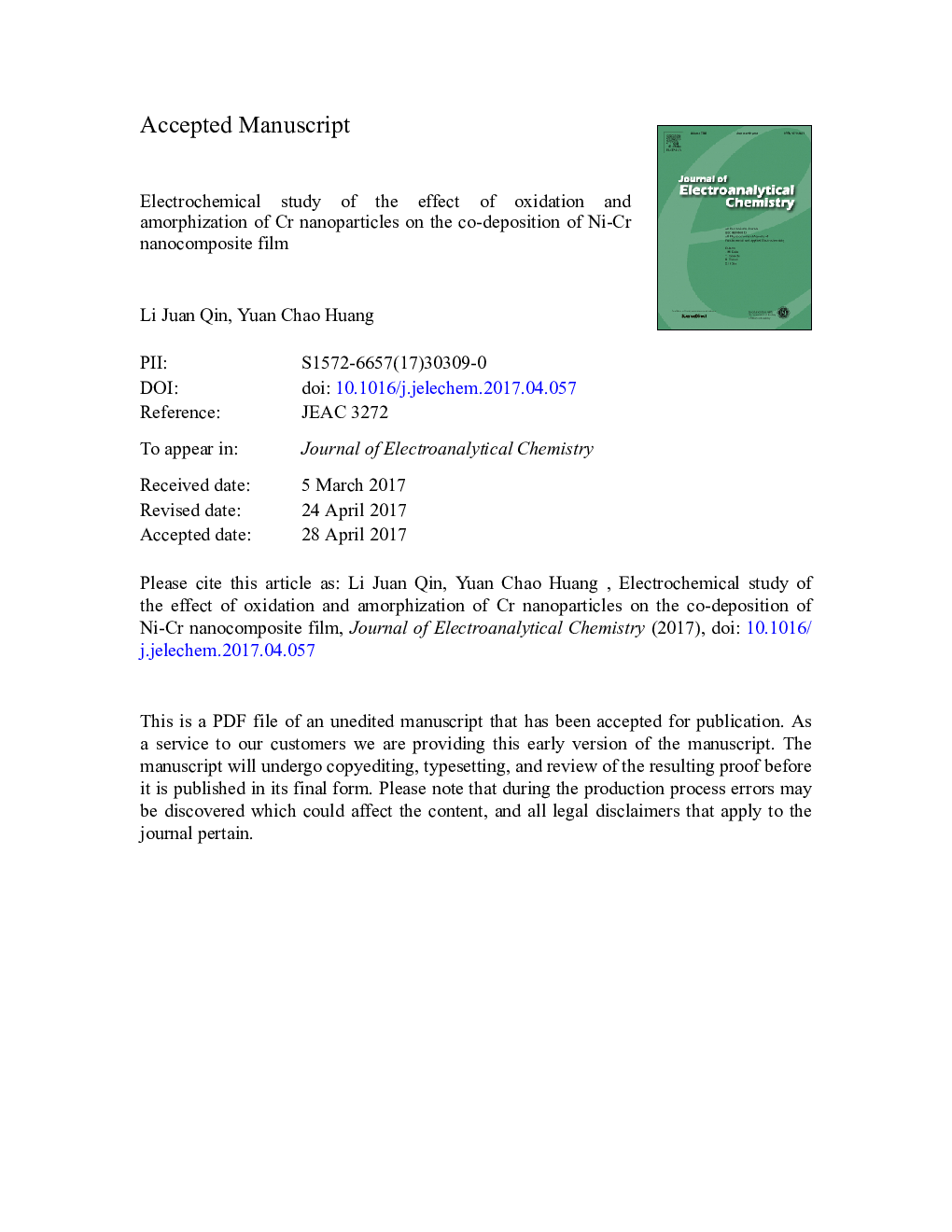| Article ID | Journal | Published Year | Pages | File Type |
|---|---|---|---|---|
| 4907814 | Journal of Electroanalytical Chemistry | 2017 | 26 Pages |
Abstract
The oxidation and amorphous transformation of Cr nanoparticles in a Ni sulfate electrolyte and its subsequent effect on the co-deposition of Ni-Cr was investigated. Transmission electron microscopy (TEM) results revealed the oxidation process of the Cr nanoparticles with increasing soaking time. In addition, the polarization of Ni reduction showed that the amorphous transformation of the Cr nanoparticles shifted the nickel reduction to more negative potentials. Electrochemical impedance spectroscopy with fresh and amorphous Cr nanoparticles verified that the kinetics of nickel electrodeposition changed to a diffusion-controlled process. Amorphous Cr nanoparticles restricted the diffusion of Ni+ads on the cathode, which made nickel reduction more difficult, thereby impairing the incorporation of Cr nanoparticles into the Ni matrix.
Keywords
Related Topics
Physical Sciences and Engineering
Chemical Engineering
Chemical Engineering (General)
Authors
Li Juan Qin, Yuan Chao Huang,
